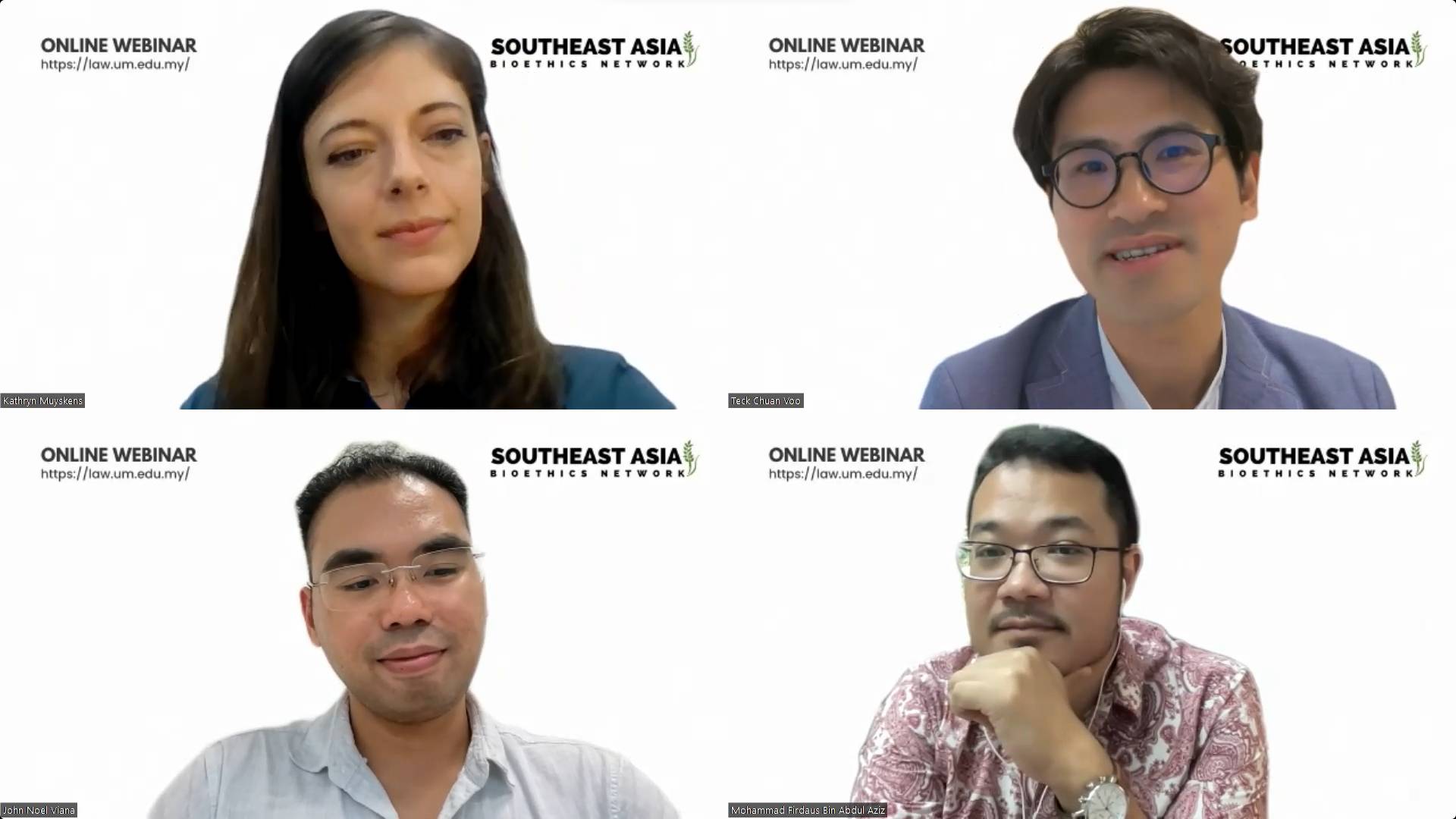
Building the Future of Bioethics in Southeast Asia: The Vision, Mission, and Values of the Southeast Asia Bioethics Network
November 14, 2023
Building the Future of Bioethics in Southeast Asia: The Vision, Mission, and Values of the Southeast Asia Bioethics Network
November 14, 2023Bioethics In Southeast Asia: Ideals and Challenges

The webinar featured three distinguished panelists, each offering valuable insights into Southeast Asian bioethics:
Dr. John Noel Viana emphasised the importance of adopting a realistic approach to bioethics that acknowledges cultural differences and explores value ethics within low to middle-income countries. He highlighted funding constraints, heavy teaching loads, institutionalisation challenges and political resistance as significant obstacles. Additionally, Dr. John underscored emerging ethical issues in disaster ethics, environmental degradation, and marginalised populations, emphasising the necessity for inclusive discourse and policy formulation.
Dr. Mohammad Firdaus Abdul Aziz stressed the significance of recognising diverse cultural perspectives within Southeast Asia and understanding differences in ethical priorities between Western and Asian contexts. He identified limited expertise, insufficient ethical education and governance issues as challenges in conducting bioethics research. Dr. Mohammad Firdaus advocated for policy reforms, political willingness and active engagement with policymakers to address bioethical concerns.
Dr. Kathryn Muyskens explored cultural nuances between the US and Southeast Asia, highlighting the need for diverse perspectives in bioethical discussions. She critiqued Western-centric approaches and endorsed the potential contributions of Southeast Asian perspectives. Dr. Kathryn outlined interests in Confucian values, medical pluralism and epistemic justice, expressing optimism for Southeast Asia's role in bioethics discourse.
The panel discussion emphasised collaboration, research visibility, cultural translation, conceptual contributions, diversity within Southeast Asian bioethics and safety concerns for scholars and practitioners. The webinar provided valuable insights into the multifaceted nature of bioethics in Southeast Asia. Next steps include compiling case studies, exploring funding opportunities and continuing to foster collaboration within the Southeast Asia Bioethics Network. The Southeast Asia Bioethics Network remains committed to shaping the bioethics landscape, amplifying Southeast Asian voices and contributing meaningfully to global ethical discourse.
